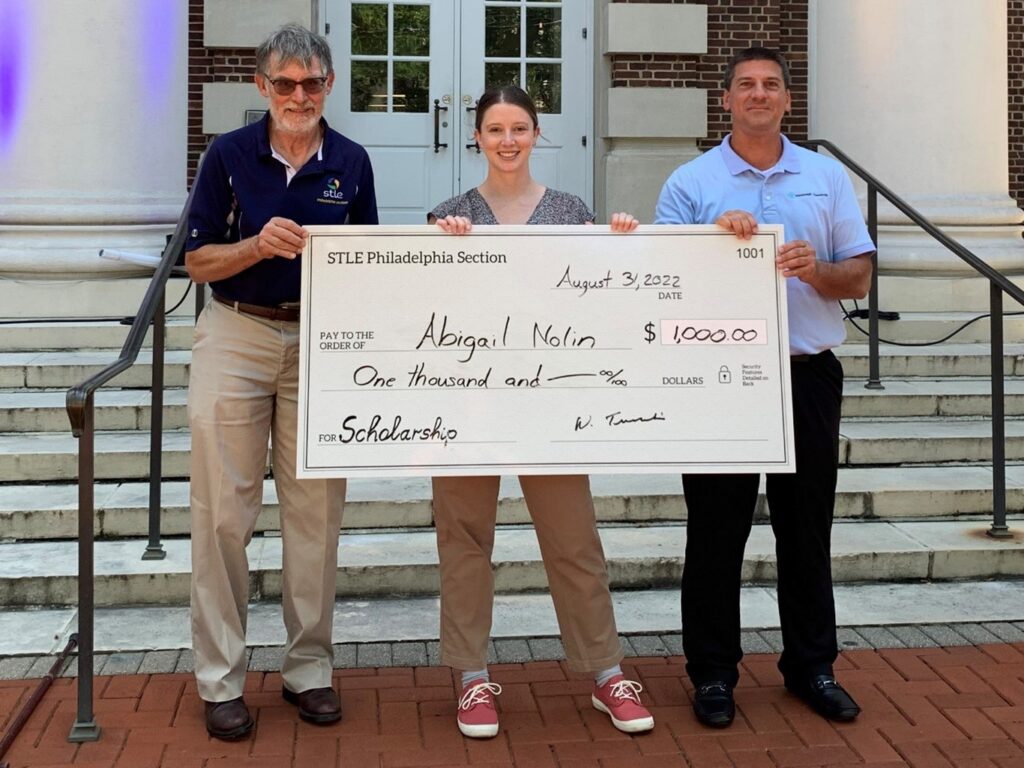The Philadelphia STLE Section is pleased to award a $1,000 scholarship to U. Delaware graduate student Abigail Nolin. Nolin is pursuing a PhD in Material Science and Engineering under Prof. Charles Dhong.
Nolin’s research studies the frictional properties important in fine touch perception. Studies in haptics and touch rely on using physical features, such as mechanical vibrations or physical bumps (braille), to modulate friction and elicit sensation. However, the mechanical forces responsible in perceiving an object arise also from the chemical properties of the object. It is unclear how frictional mechanical stimuli from surface chemistry and molecular behavior result in tactile sensation, limiting the ability for haptics to create realistic interfaces and probe fundamental aspects of tactile perception. Her research uses materials phenomena to create precise physical cues for tactile sensations using self-assembled silane monolayers and polymers with known effects on tribological properties. Physically smooth surfaces are screened using a custom mechanical test with a mock finger to collect dynamic friction at conditions relevant to human touch. The friction traces are analyzed to form predictions for touch and verified with human psychophysical testing. This research aims to reveal relationships between material structure and dynamic friction as well as fundamental aspects of touch. Nolin has published two papers in Soft Materials, both as first author. She is a leader in the group, mentoring multiple graduate and undergraduate students.
Nolin is active on campus and passionate about broadening participation into science. She is active in dance group on campus, allowing her to communicate science to a larger audience. Nolin is also active in EMPOWER and WISE, on-campus groups which aim to increase the participation of underrepresented groups in science.
